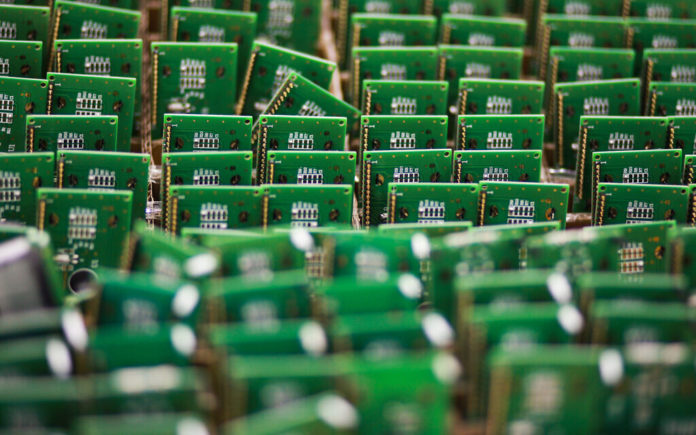Google, Microsoft, Facebook, Intel and Nvidia are setting up or expanding their Israeli chip design operations, and local firms are seeing a renaissance as VC money rolls in.
In March, US tech giant Google appointed Uri Frank, a former Intel Corp. executive, vice president of engineering for server chip design and head of a team in Israel, thereby doubling down on the making of custom chips to boost the performance of its computing systems.
Google has had R&D activity in Israel since 2005, with teams in Haifa and Tel Aviv tackling machine learning, artificial intelligence, natural language processing and machine perception challenges. Frank’s appointment, however, marked Google Israel’s first foray into chip design and development, for which new employees will be hired.
Away from the splashy IPOs, mergers and exits of the Israeli tech world, a quiet revolution is happening on the ground in the not-so-sexy realm of semiconductors.
The move toward Israel is being driven by a shift toward digitalization compounded by a global shortage of chips being felt across industries, spurring chipmakers and tech firms to begin developing their own semiconductors so they can expand operations.
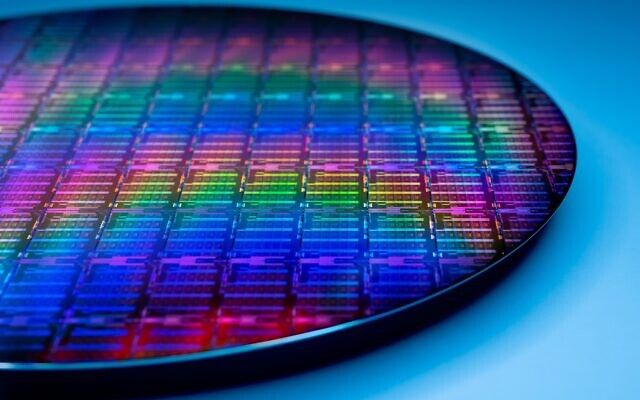
There are billions of chips, also called semiconductors, used for everything from phones and laptops to cars and cloud computing, making them the engine of the tech industry. But manufacturers can’t do much without a steady supply of them.
“Chips, and semiconductors, are for digital world what fuel is for industry,” said David Perlmutter, a former senior executive at Intel Corp. who during his 34-year career at the US tech giant helped develop some of the firm’s key products, including the architecture of the Intel Pentium Processor and the Centrino Mobile Processor.
“In your car there are today hundreds of chips,” said Perlmutter in a phone interview. “Carmakers are saying they are lowering production because of a lack of chip supply. Ten years ago, a chip shortage wouldn’t have affected the industry as much. Everything today is around the capability of chips.”
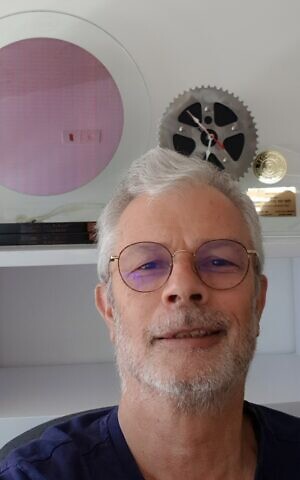

Intel Corp (Courtesy).
Even before the pandemic, many tech firms were beginning to design and manufacture their own chips, rather than farming out the job to subcontractors like TSMC, Intel and Samsung. Custom-made chips can better serve their different products as competition grows. Custom-made chips also better meet the complex requirements of artificial intelligence computations as they handle machine learning algorithms and process images.
“The complexity of each of these chips grew in an unprecedented manner,” Perlmutter said. “When I joined Intel in 1980 the number of components, called transistors, in the most advanced processor chip was around 30,000-40,000. Today there are 50 billion transistors in an advanced processor chip.”
Israel’s prowess in not in the manufacturing of chips but mostly in their design, he said. “R&D development of a chip is likely the most complicated task in the world. The level of complexity is huge, and these are projects of hundreds of people who use computing tools to program them and giant computers to do simulations.”
With chips, “you touch at the underbelly and the most important nerves of the digital world,” Perlmutter added.


The shift to cloud-based computing and the increased use of artificial intelligence is giving a new push to this field, as new chips need to be designed and developed to speed up the processing of huge amounts of data involved.
Training engineers takes many years, and even after they get their degrees, it takes years until they “fully understand the complexity” of chip design, Perlmutter said.
The tech giants understand that all of their AI and cloud activities are based on chips. They also believe that “they will find the best talent in Israel,” Perlmutter said.
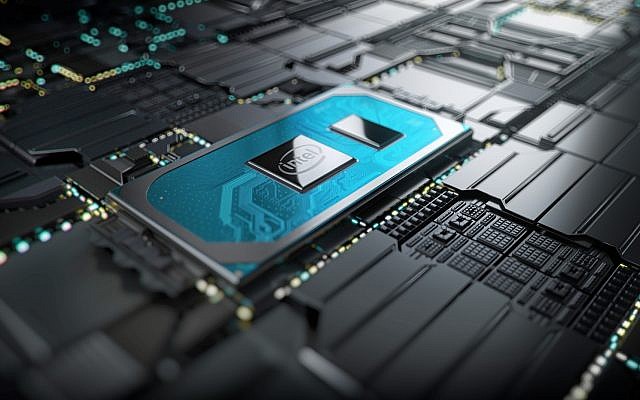

Aside from Google, several other major firms have made moves toward giving Israel a bigger role in their chip design strategy.
Pat Gelsinger, the newly appointed CEO of Intel, said during a visit to Israel this year that the US tech giant is expanding local operations, setting up a new $200 million campus in Israel to develop the “chips of the future,” and will be recruiting 1,000 new employees locally.
Nvidia, a leading US chipmaker, said in March it plans to recruit 600 engineers locally to boost its activities in Israel, with a focus on artificial intelligence.
Microsoft is also increasing its chip-design activities in Israel, and Facebook is reportedly seeking to set up an R&D center in Israel focusing on the development of chips.
Amazon in 2015 bought Israel’s Annapurna Labs, which is now the US firm’s chip unit and is behind many of its most advanced custom chip projects.
‘We have the knowledge’
Until 1974, chips were only made in California’s Silicon Valley, which got its name from the material used to make the tech. That year, Intel opened a research and development center in Israel, just as the industry started taking off.
Some of the Intel’s fastest processors were developed by its Haifa team, which is the firm’s largest R&D center outside the US.
National Semiconductor, the US chip manufacturer, AMD and Motorola all followed Intel’s lead in setting up chip design facilities in Israel, fueling Israel’s eventual transition into Startup Nation.
Tech firms are expanding their activities in Israel because they know “know the complex abilities that exist here in Israel to design complex chips,” Perlmutter said.
According to data compiled by IVC Research Center, a data firm that tracks the local high-tech industry, there were a total of 37 multinational firms operating in Israel in the semiconductor segment in the first half of 2021, with a similar number in 2020 and 33 in 2017.
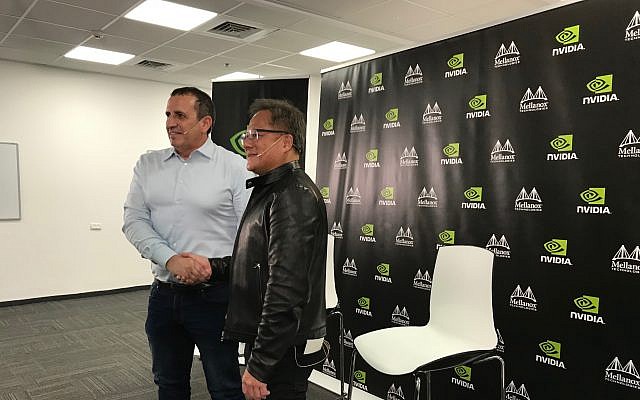

As demand grows for faster speeds, greater processing and storage power, there are huge technological challenges that need to be solved, said Waldman, the Mellanox founder. “We have the knowledge and the ability and we are among the most advanced countries in this field in the world.”
Other semiconductor design hubs, including Europe, which is starting to take off, are also good at chip design, Perlmutter said, but not at Israel’s level. China and India “are getting closer,” he said. “But Israel still has the advantage.”
‘Just the tip of the iceberg’
Microsoft employs more than 2,000 workers at its R&D center in Herzliya and the in-house development of chips is seen as a “strategically important and significant” part of its activities, said Ohad Jassin, who manages Azure Edge & Platform at Microsoft Israel R&D. Even so, he said, many of the chips the US firm uses in its products still come from the firm’s partners, including Intel, ARM and AMD.
The chips designed by Microsoft’s Israel team are used for computing, edge appliances and cloud data centers, Jassin said in an interview. “There is experience here in Israel, as it is a veteran in the field, and there is talent that stems from the universities.”


Microsoft Israel R&D (Ronen Ackerman)
Microsoft also sees Israeli startups operating in the field as possible investment and acquisition targets, he said.
Locally, there are several semiconductor startups that develop chips, memory cards and processors, and it’s not uncommon for multinationals to acquire local companies or work with them as they expand chip-making activities here.
“There is an ecosystem here that is very interesting, that can interact with the larger companies,” said Perlmutter. They invest in these firms, sometimes buy them, and the engineers “move from one place to another. That is part of the tech ecosystem that is very important.”
Venture capital firms and corporations are pushing more funds into the semiconductor sector, which for years they largely turned a blind eye to, lured instead by the easier appeal of the software and social app industries. While the amount being invested in Israeli firms pales in comparison to those in the US, there is a clear trendline.
The nation’s largest tech exit ever was the 2017 sale of Mobileye, a maker of self-driving technologies and chips, to US giant Intel for a whopping $15.3 billion.
Other notable acquisitions have been US firm KLA-Tencor’s purchase of Orbotech for $3.4 billion in 2018. In 2019, chip manufacturer Nvidia snapped up Israel’s Mellanox Technologies for some $7 billion. Intel also acquired Habana Labs for $2 billion in 2019.
“Six, seven years ago it was hard to raise money for chip technologies. Big money went to software development, because investment in chip development is a longer process. But all of that has changed with the rise of AI and fast data communications,” said Perlmutter. Even so, he added, the number of corporations and VC firms that invest in semiconductors is still way smaller than the overall investment in tech firms.
In the first half of 2021, Israeli semiconductor startups raised a total of $588 million, in 13 deals, $141 million shy of the amount raised in the whole of 2020 in 24 deals, according to data compiled by IVC. Israeli tech firms raised a whopping $11.9 billion in the first half of 2021.
“There is a renaissance of the sector and there is a lot of investor money going into the field, including in Israel. This is giving a boost to the Israeli economy and also to the startup ecosystem, as it will lead to exits,” said Perlmutter.
IVC numbers show that the first half of 2021 saw three semiconductor firms make deals to raise at least $100 million. That’s compared to three such deals in all of 2020 and zero in 2019.


manager of Intel Corp.’s chip development and
design process. (Shlomo Shoham).
The amounts raised per funding round are also much higher, with an average of $45 million raised per round in the first half of the year, compared to an average of $30 million in 2020, and an average of $15 million per round in 2019, when when $449 million was raised in 29 funding rounds.
What we have seen till now, both in terms of funding and exits, is “just the tip of the iceberg.” said Perlmutter.
“Overall, in Israel it is a very good time for hardware silicon engineering,” said Shlomit Weiss, who earlier this month was appointed co-general manager of Intel’s design engineering group, where she will be responsible for the entire chip development and design process of the US tech giant, including for computers, laptops and servers.
Intel is the most active investor in the national semiconductor scene, according to IVC, having made 15 investments in the period between
2017 and the first half of 2021.
Operating in Israel “is good for the companies, because there are very good and innovative engineers” locally, she said in a recent interview. It is also good for Israel as “it helps the economy, and it also is good for the engineers, as it gives them more opportunities and more competition.”
Wanted: Engineers and startups
There are many challenges ahead, however, with the main ones being a shortage of engineers and programmers and a huge hike in salaries caused by competition between the multinationals and local startups for talent. The average monthly salary for a software engineer in Tel Aviv is some NIS 24,000 ($7,300), versus an average salary of some NIS 13,000 ($4,000) for the rest of the economy.
According to data compiled by the Israel Innovation Authority and Start-Up Nation Central, Israel’s tech industry suffered from a shortage of some 13,000 skilled workers at the end of 2020.
“Universities are not churning out enough engineers and there needs to be a strategic move of the industry and the government to increase the number of engineers in the shorter term and for the longer term,” said Perlmutter.
Another emerging trend, which is also being felt in the rest of Israel’s tech ecosystem, is a decline in the number of startups being set up, as would-be-entrepreneurs shun the risk of setting up their own firms in favor of the fat salaries offered by the local multinationals or the recently formed unicorn tech firms.
According to IVC, in the first half of the year there were no new startups set up in the semiconductor sector, as opposed to three new ones last year, and 12 in 2017.
“This is a major danger to the growth of our industry,” said Perlmutter. “The energy of innovation must continue. An ecosystem without new startups is not a healthy one.”
(Times of Israel).

